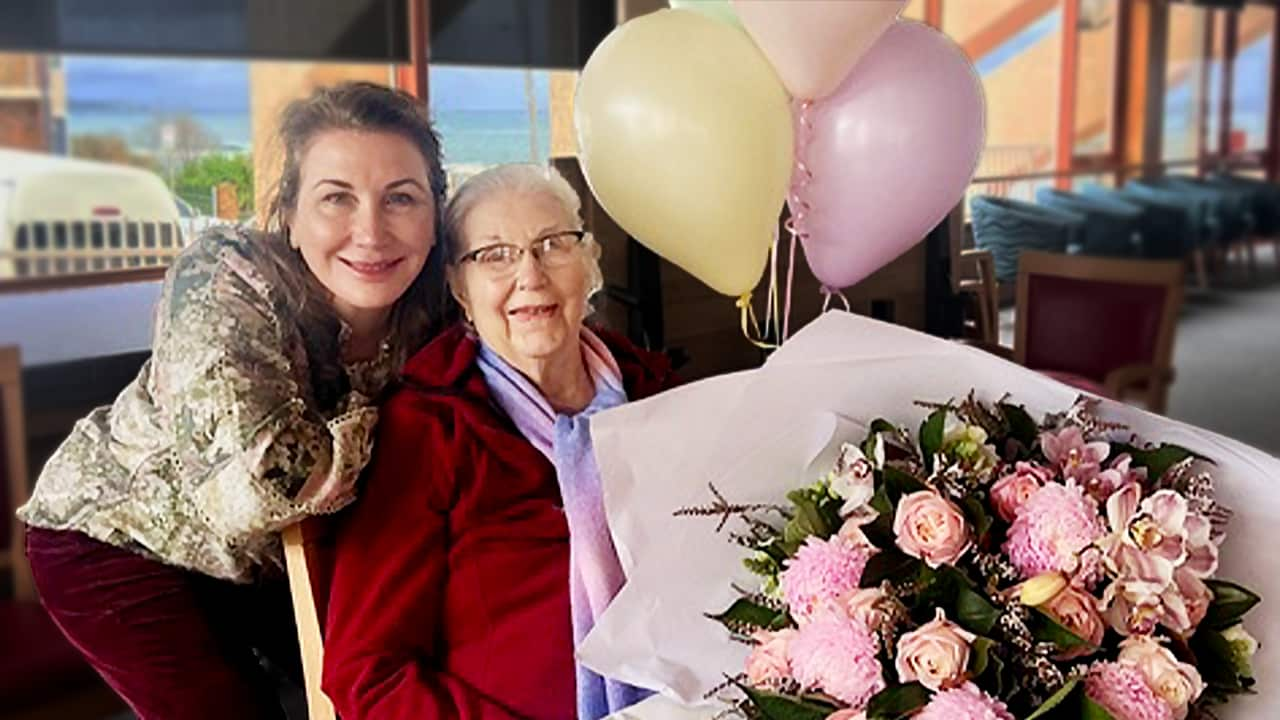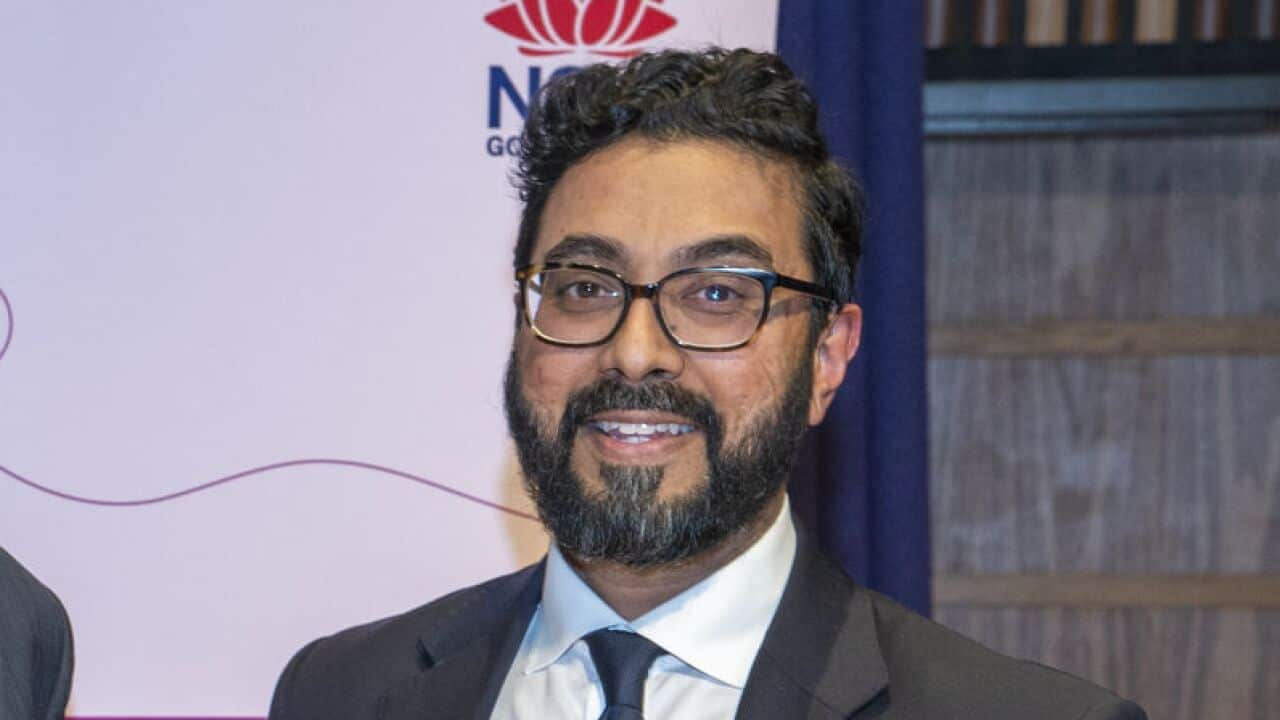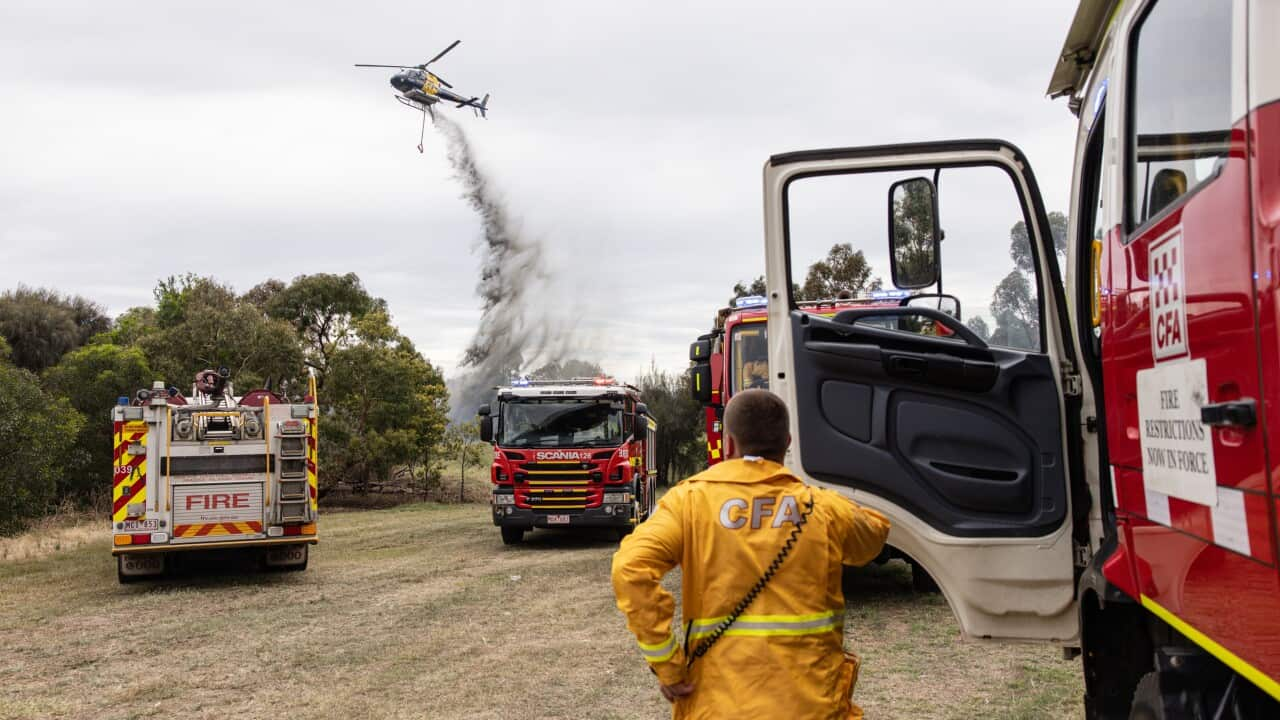When is age more than a number and who gets to decide when it comes to age limits? Watch Insight episode How Old Is Too Old on
I’ve worked for more than 35 years as a registered nurse. I’ve also had four children in that period, fitting work around raising them, with the help of my mother, Betty.
That is, until they were no longer safe in her care.
Betty was born in 1929 and had me just before she turned 38. I was almost 28 when I had my first son, and Mum was 66. Around eight months after the birth of my son, I returned to part-time work, relying on Mum to help out with childcare.
At that stage of Mum’s life, she was fiercely independent, driving and working part-time. She’d had some health issues but was very well monitored and cared for by her GP. She didn’t have any cognitive inabilities or decline that could have compromised looking after a little boy.
My second son was born a few years later, and again Mum helped out with looking after the kids when I needed her to.
At age 71, Mum had a stroke. She recovered well, had no significant compromise, and continued to drive and live independently.
When my first daughter Clare was born, Mum was a very well 74-year-old lady, happily doting on her three beautiful grandchildren and helping to care for them.
Betty, at age 75, with Adele’s daughter, Clare, when she was younger. Source: Supplied
A few years later, at 77, there was an incident one afternoon when Mum was babysitting Clare, who was about three-and-a-half at the time.
After a busy morning of craft and play, Mum relaxed on the lounge and fell asleep while Clare had her lunchtime nap.
Waking after her nap, with her grandma asleep, Clare decided to take the dog for a walk. She opened the door and got herself out of the house, across the road and up the hill leading down to the river.
Luckily, it wasn’t peak hour, as we live on a major road and cars zoom past our house at times. Something must have triggered Mum — she woke up and realised that Clare wasn’t in the house.
She saw the front door open, raced outside and saw this little girl marching up the hill with her dog. The potential for something grave was very high.
It could have resulted in a horrific motor vehicle accident with drivers zooming over the hill. Clare could have been hit. If she’d continued down the right of way into the public park next to the river, she could have easily slipped from the footpath and drowned.
Obviously, Mum was beside herself with what had happened and there was a lot of catastrophising by both her and I. It was very hard not to be angry with her at the time.
But the reality was this incident could have happened to any of us.
That ‘near miss’ was a huge wake-up call and shock, and we had to come up with a new arrangement as a family.
Adele’s daughter Clare (left) with Adele’s mother, Betty. Source: Supplied
‘Heated conversations and aggressive reactions’
If I continued to work in the future, my husband, a babysitter or nanny would take care of the kids, as we didn’t want Mum to be in another situation like this again.
Mum was understandably offended. I would also be offended if I was suddenly told I was no longer capable of caring for my grandchildren.
I had to say to her: “It’s not that you’re not good enough. It’s just that there’s a lot more that you need to do and I need to make sure you are well enough to do it.”
Adele (left) with her mum Betty. Source: Supplied
Nearly six years ago, at age 88, Mum was in an accident.
While driving, her foot became locked on the accelerator of her car, and she was unable to slow down or stop. She drove her car into the wall of a shopping centre.
Both airbags deployed and she had burns and abrasions across her face. She maintained the car got away from her.
What I realised was that her reaction time and abilities had significantly decreased.
During the next 18 months, there were many very heated conversations and aggressive reactions over the accident and the notion that she should stop driving.
“I will not get in the car with you,” I told her at one point. “Nor will my husband get in the car, and you will not be driving any of your four grandchildren in the car ever again, because you’re not safe.”
She later took a couple of driving lessons and concluded that it was too much for her.
At age 90, she surrendered her licence.
Difficult conversations around ageing
When I am a grandparent, I hope that I have the insight to realise my limitations and when the time comes, be able to say: “I don’t feel comfortable looking after these children” or: “I don’t think I should be driving anymore” before one of my children says: “Mum, you’re not good enough or safe anymore.”
Having a conversation about cognitive decline in an ageing parent is very challenging.
No one wants to hear that they’re becoming forgetful or are declining in any aspect of their lives.
I’ve learned that the best thing you can do is reassure them of their place and value in the family and, most importantly, navigate a new normal that helps them maintain a safe and independent lifestyle.
For more stories, head to a podcast series from SBS hosted by Kumi Taguchi. From sex and relationships to health, wealth, and grief, Insightful offers deeper dives into the lives and first-person stories of former guests from the acclaimed TV show Insight.
















